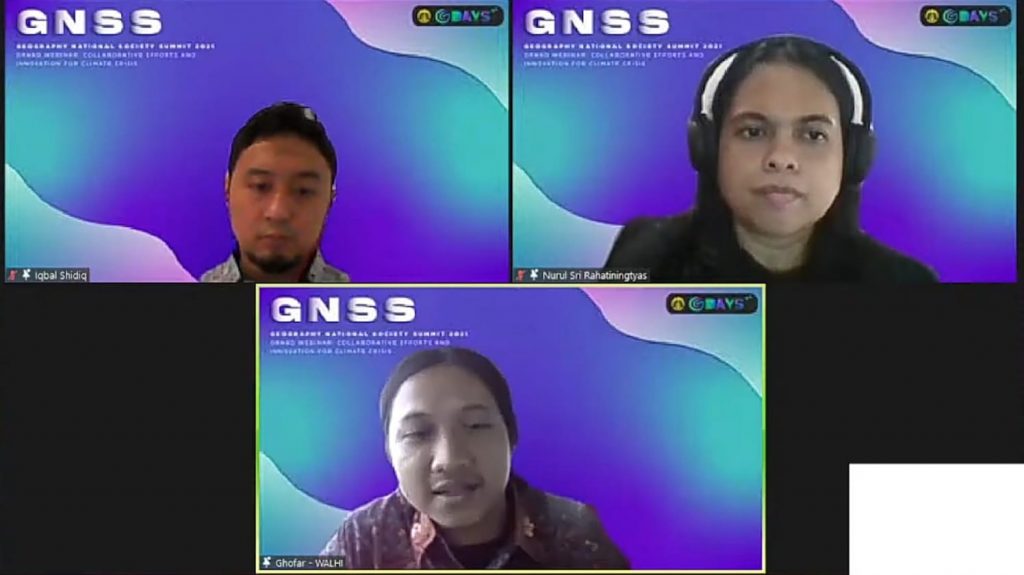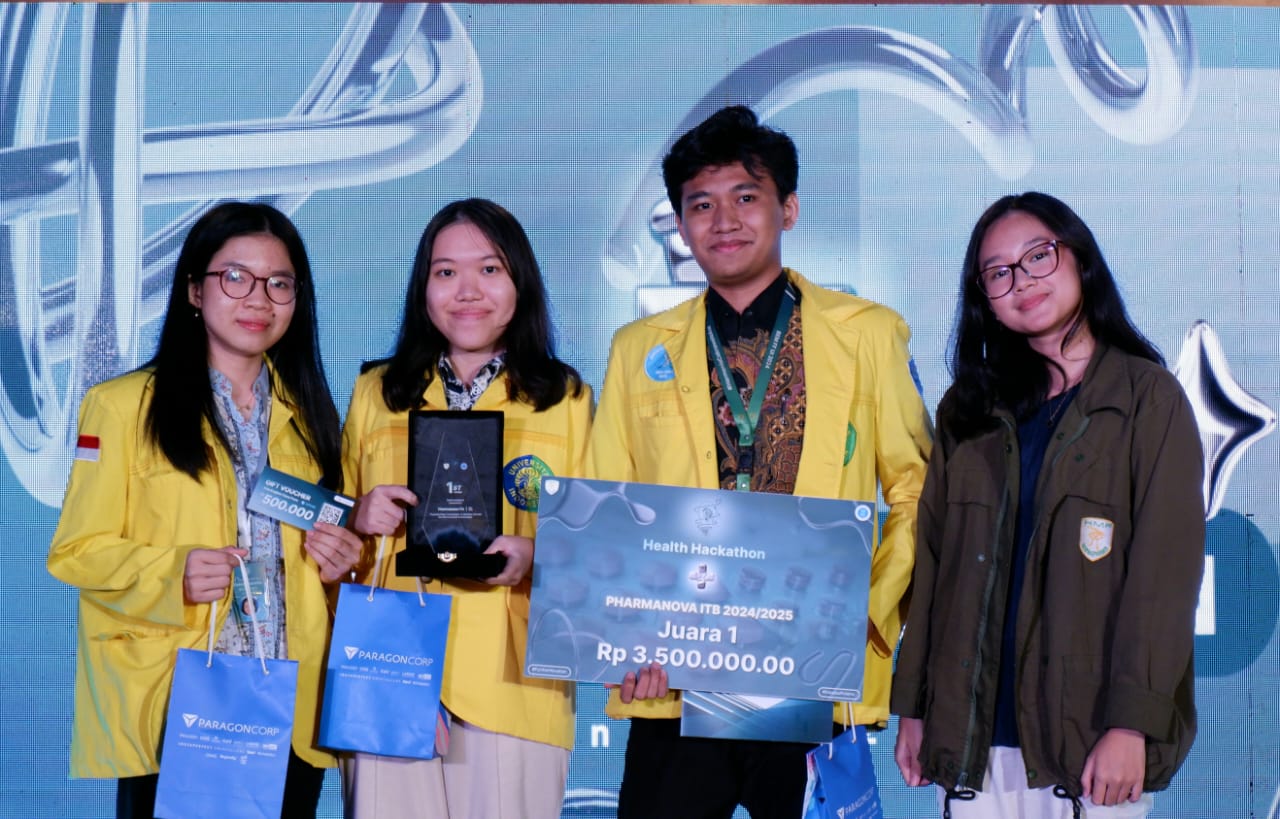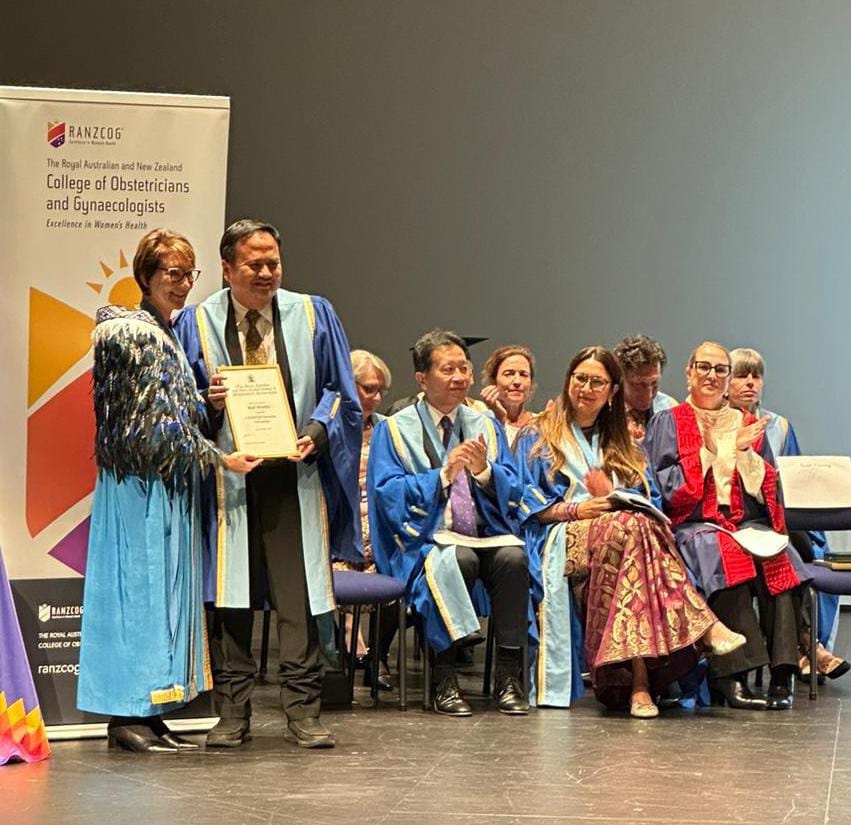 Author: Almas Satria
Author: Almas Satria
In an effort to deal with the climate crisis, on Saturday (27/11) the Department of Geography UI held the 2021 Geographic National Society Summit (GNSS) webinar with the theme “Collaborative Effort and Innovation for Climate Crisis” through the Zoom Meeting application. The webinar presented various speakers including Dr. Dodo Gunawan, DEA. (Head of the Climate Change Information Center of the Meteorology Climatology and Geophysics Agency), Canserina Kurnia (Esri Global Senior Solution Engineer), Abdul Ghofar (Observer Participant of Conference Of Parties /COP26 Wahana Lingkungan Hidup Indonesia), and Iqbal Putut Ash Shidiq, M.Si., (Lecturer at the Department of Geography, Universitas Indonesia).
In his remarks, the Dean of the Faculty of Mathematics and Natural Sciences (FMNS), Dr. Rokhmatuloh, S.Si., M.Eng., said that this webinar is one of the right steps that can be used to address important issues in the world, especially regarding climate issues. Dr. Rokhmatuloh hopes that this event can be a trigger to achieve the target of carbon net sink in 2030 as promised by Jokowi at the last COP26. “The results of this activity must be able to provide at least a policy brief that can be conveyed to the government how our efforts at FMNS UI help the government in an effort to achieve a carbon net sink in 2030,” said Rokhmatuloh.
The first presentation session was conducted by Dodo. He said that currently, global warming has occurred and can trigger climate change that will affect all inhabitants of the earth. Another speaker, Iqbal, explained that geography has a big role in dealing with climate issues.
In his presentation, Iqbal said that geography is a field of science that has a broad scope ranging from physical, human, and engineering. With such a wide scope, geographers are required to have an interest in important issues such as climate change. The climate crisis itself is closely related to space, so it can be explained by geography because geography focuses on comprehensive spatial analysis and covers various aspects. From this spatial analysis, adaptation and mitigation measures for climate change can be sought.
 One of the concrete steps that the Department of Geography UI has taken is by conducting various researches which are then published. In general, studies related to climate change impacts make extensive use of remote sensing, which can be used to determine surface temperatures. However, tackling the climate crisis requires a concerted effort. “Geographers, as one of those who play an important role, of course, may not be able to move alone. There are other elements that we can relate to and communicate with so that finally a form of joint activity is created,” said Iqbal ending his session.
One of the concrete steps that the Department of Geography UI has taken is by conducting various researches which are then published. In general, studies related to climate change impacts make extensive use of remote sensing, which can be used to determine surface temperatures. However, tackling the climate crisis requires a concerted effort. “Geographers, as one of those who play an important role, of course, may not be able to move alone. There are other elements that we can relate to and communicate with so that finally a form of joint activity is created,” said Iqbal ending his session.
In addition to research, collaboration in the use of information technology is also important in addressing climate change, one of which is Geographic Information System (GIS) technology. One of the speakers, Canserina, said that in order to solve the current climate crisis, climate scientists must make their research understandable and digestible to the public and policy makers. The use of geographic data such as maps is one of the easiest ways to display an issue and understand its patterns and distribution. GIS technology can now be used to map and analyze locations experiencing climate change. The current technological developments in GIS can make it easier to use. With this convenience, nowadays not only geographers can use GIS but anyone can use GIS for various purposes, one of which is mapping the climate crisis.
The Indonesian government as a policymaker has an important role to play in addressing the current climate crisis. This can be done by stopping the use of fossil energy, increasing emission reduction targets in all sectors, and protecting and restoring essential ecosystem areas such as mangroves and peat. Apart from the government, each individual also has a role to play in tackling the climate crisis. This role can be achieved by changing behavior in energy use, climate literacy, and promoting initiatives to restore and protect essential ecosystem areas.



